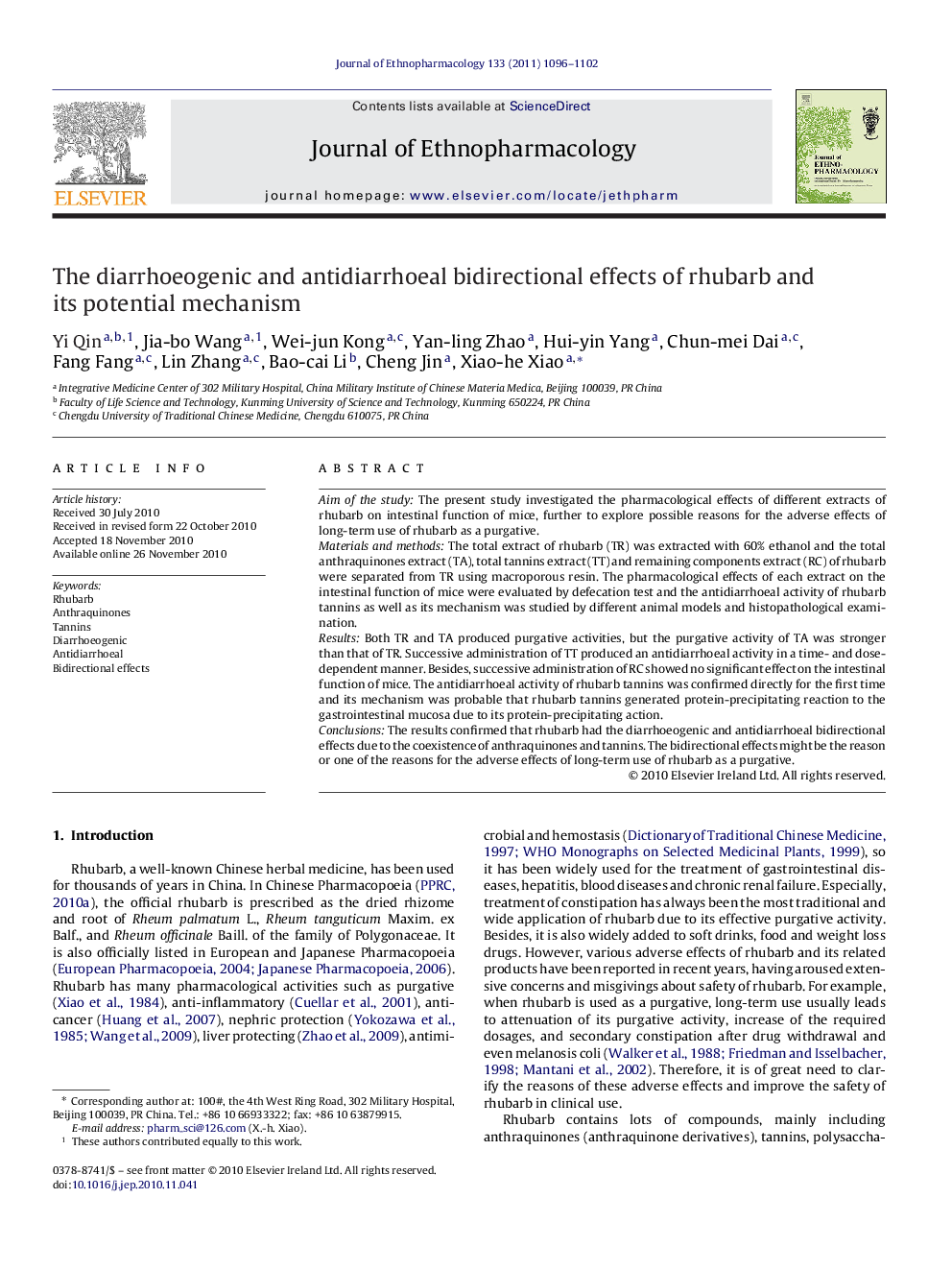| Article ID | Journal | Published Year | Pages | File Type |
|---|---|---|---|---|
| 5839909 | Journal of Ethnopharmacology | 2011 | 7 Pages |
Abstract
Aim of the studyThe present study investigated the pharmacological effects of different extracts of rhubarb on intestinal function of mice, further to explore possible reasons for the adverse effects of long-term use of rhubarb as a purgative.Materials and methodsThe total extract of rhubarb (TR) was extracted with 60% ethanol and the total anthraquinones extract (TA), total tannins extract (TT) and remaining components extract (RC) of rhubarb were separated from TR using macroporous resin. The pharmacological effects of each extract on the intestinal function of mice were evaluated by defecation test and the antidiarrhoeal activity of rhubarb tannins as well as its mechanism was studied by different animal models and histopathological examination.ResultsBoth TR and TA produced purgative activities, but the purgative activity of TA was stronger than that of TR. Successive administration of TT produced an antidiarrhoeal activity in a time- and dose-dependent manner. Besides, successive administration of RC showed no significant effect on the intestinal function of mice. The antidiarrhoeal activity of rhubarb tannins was confirmed directly for the first time and its mechanism was probable that rhubarb tannins generated protein-precipitating reaction to the gastrointestinal mucosa due to its protein-precipitating action.ConclusionsThe results confirmed that rhubarb had the diarrhoeogenic and antidiarrhoeal bidirectional effects due to the coexistence of anthraquinones and tannins. The bidirectional effects might be the reason or one of the reasons for the adverse effects of long-term use of rhubarb as a purgative.
Related Topics
Health Sciences
Pharmacology, Toxicology and Pharmaceutical Science
Pharmacology
Authors
Yi Qin, Jia-bo Wang, Wei-jun Kong, Yan-ling Zhao, Hui-yin Yang, Chun-mei Dai, Fang Fang, Lin Zhang, Bao-cai Li, Cheng Jin, Xiao-he Xiao,
